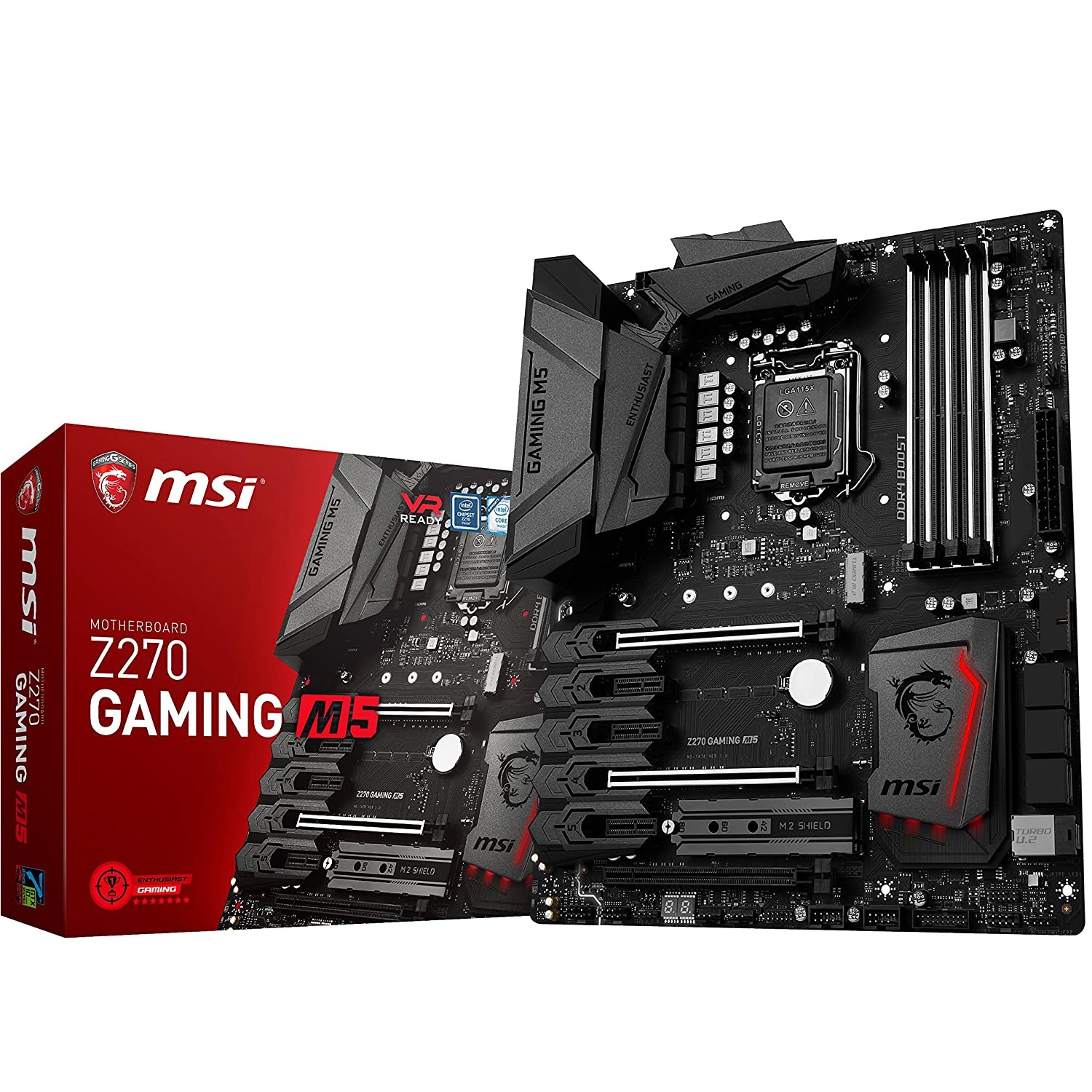
- Brand MSI
- SDRAM
- Intel Z270
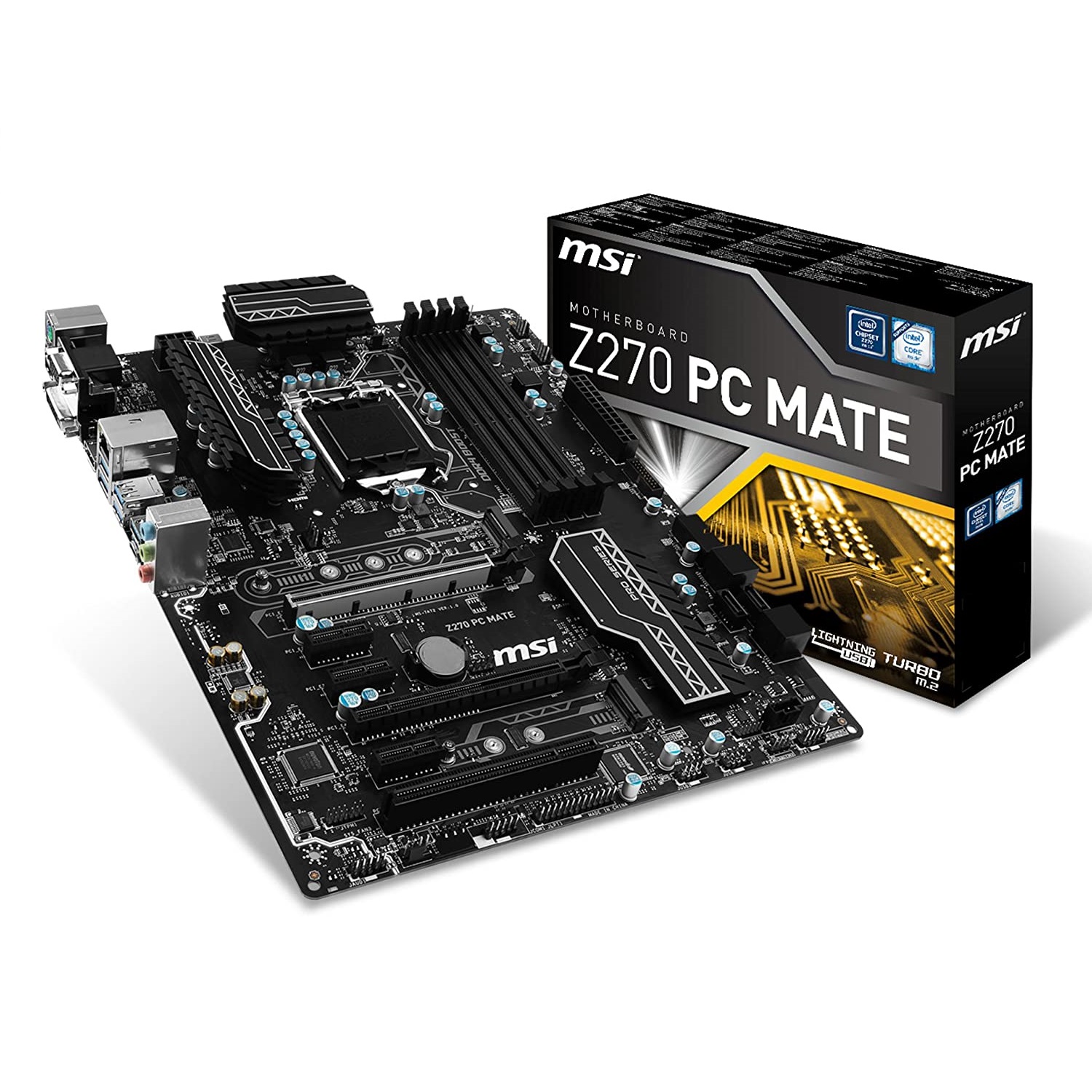
- Brand MSI
- Intel Z270
- Z270 PC MATE
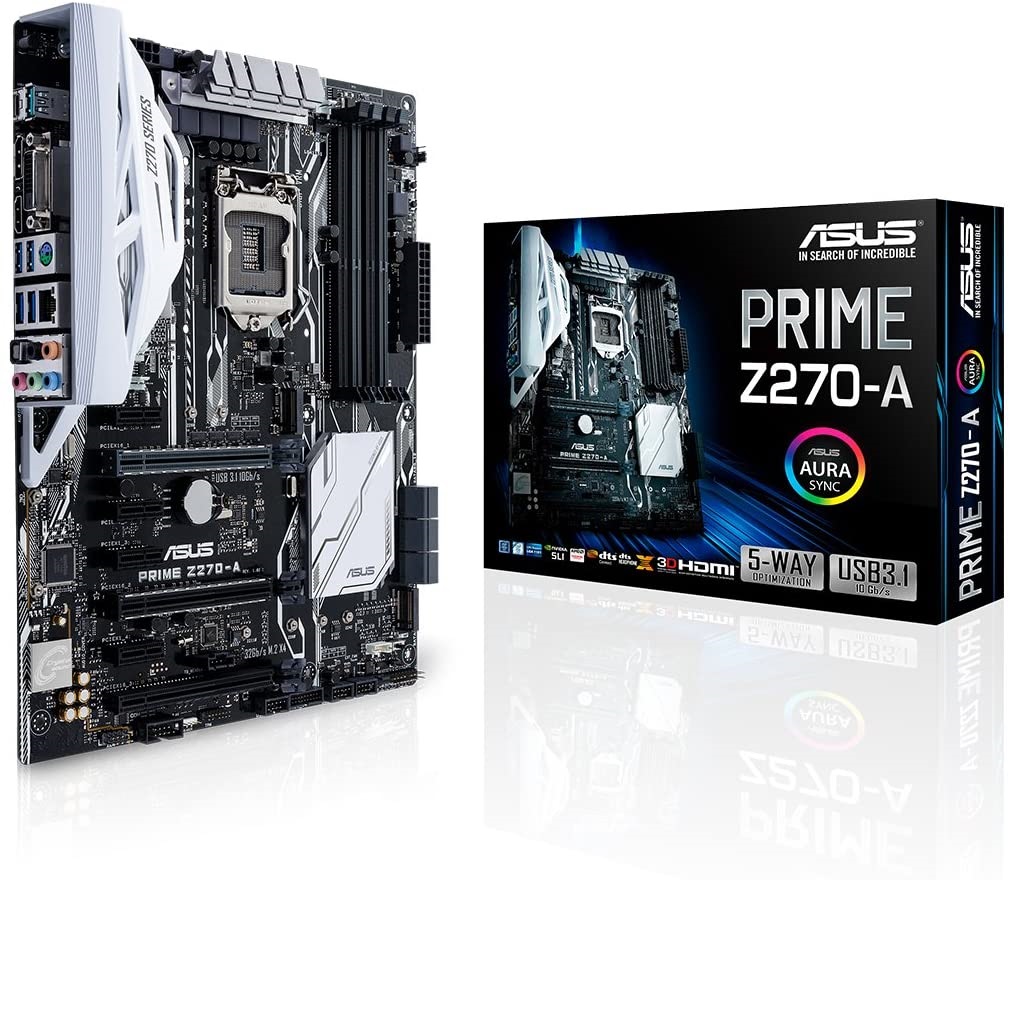
- Brand ASUS
- Windows 10
- 64 GB
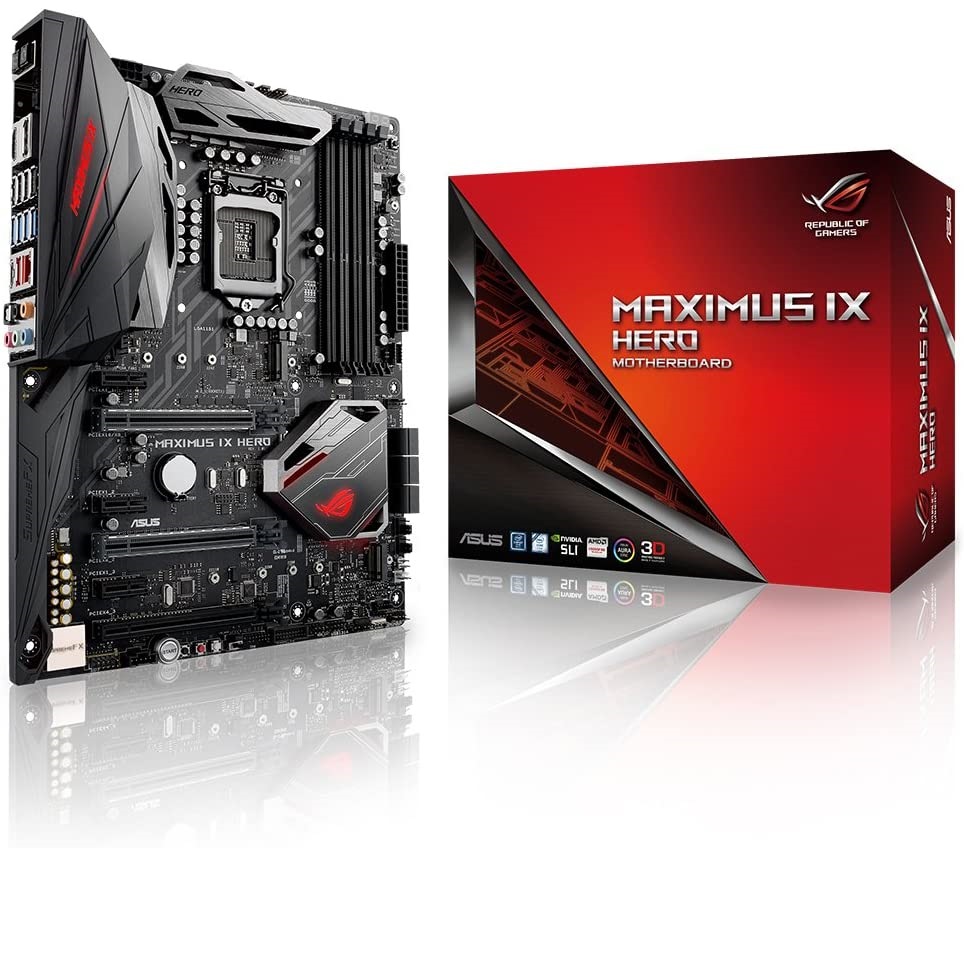
- Brand ASUS
- Windows 7
- 64 GB
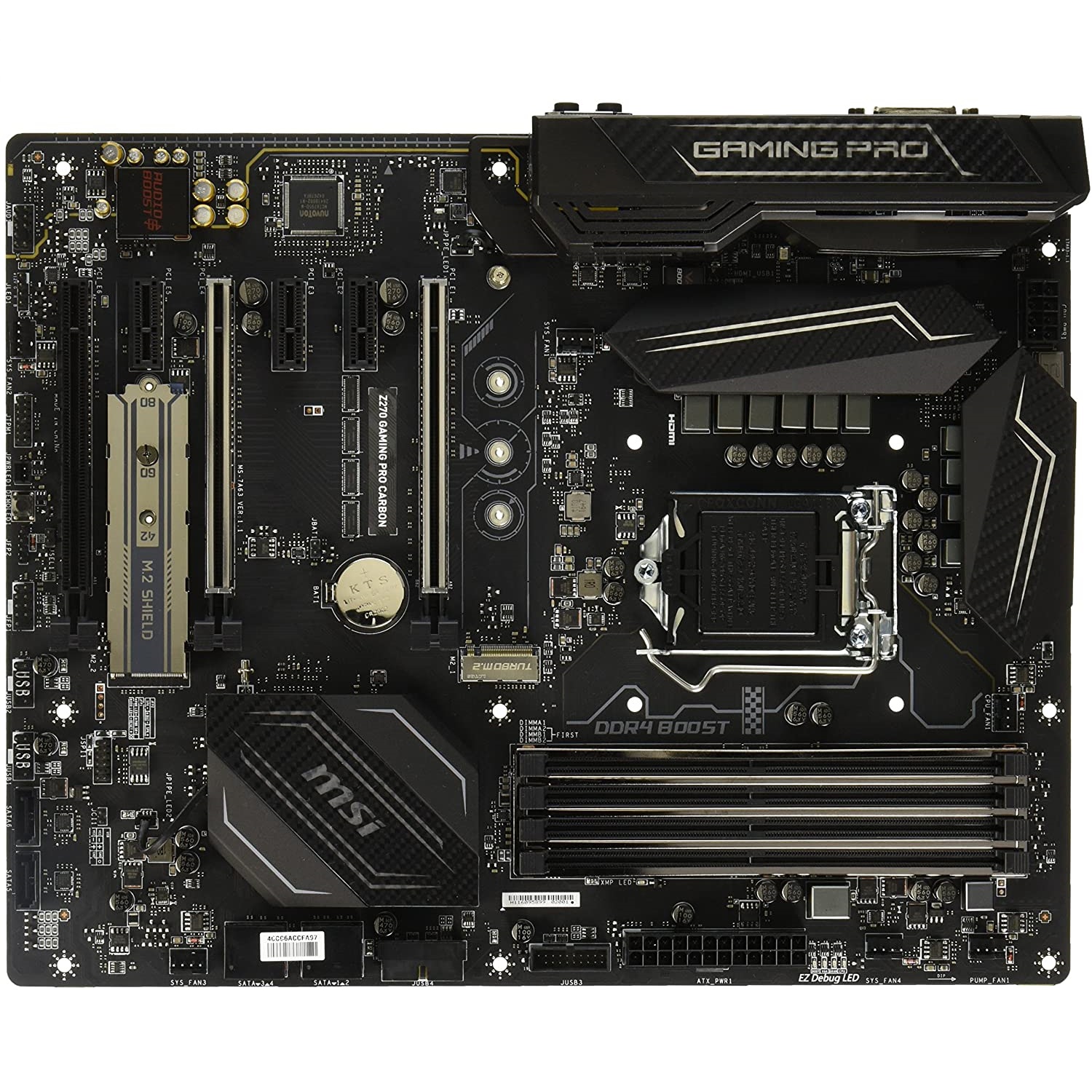
- Brand MSI
- Intel Z270
- 64 GB
Choose the Best Gaming Motherboard
Customer’s Choice: the Best Rated Gaming Motherboards
3 users answered this survey. Please help us improve this review!
Why should you buy a high-end motherboard for i7 7700K? The answer is simple: to get the most out of your gaming experience.
Choosing a motherboard that’s compatible with your CPU is essential for peak performance. Not only will you enjoy faster speeds and better graphics, but you’ll also have access to features that make gaming easier and more fun.
When it comes to choosing a gaming motherboard for i7700K, there are a few things you need to consider. The first decision you need to make is whether you want an ATX or micro-ATX board. Then, you need to decide on the features that are most important to you. Do you need built-in Wi-Fi? How about multiple PCI slots for adding extra hardware? Or maybe support for overclocking is important to you.
Are you looking for the best gaming motherboards for i7 7700K? You’ve come to the right place. In this guide, we will answer some of the most common questions about gaming motherboards and help you find the perfect one for your needs. We will also provide product reviews and useful tips to make sure you get the most out of your purchase. So, whether you’re a beginner or an experienced gamer, read on to find out more!
Table of Contents
MSI Enthusiastic Gaming Intel Z270 DDR4 ATX Motherboard – the Editor’s choice!
 This MSI Motherboard is designed for gamers who are looking for the best gaming experience. It has a number of features that will make your gaming smoother and faster.
This MSI Motherboard is designed for gamers who are looking for the best gaming experience. It has a number of features that will make your gaming smoother and faster.
The DDR4 boost with steel armor helps to improve the performance of your memory, while the VR ready ensures that you can enjoy the most immersive virtual reality games. The triple Turbo M.2 allows you to access data quickly and easily, while RAID support ensures that you never have to worry about losing any important files or data.
Another great feature of this motherboard is its CrossFire and LSI support, which means that it can be used with a wide range of graphics cards.
The software includes all of the automated overclocking functions that come on this board, and being able to ramp up performance simply by turning a knob – which goes up to 11 – is enticing enough for any non-overclocking computer enthusiast.
The MSI motherboard is a great tool for enthusiastic gamers. It supports the 6th and 7th gen of intel core processors, which LGA 1151 socket to make sure that you’ll have the best gaming experience.MSI Pro Series Intel Z270 CrossFire ATX Motherboard – the best for an audio boost!
 The MSI mobo can be the perfect choice for your next build. With a great audio boost and stable performance, it’s a great option for gamers and power users alike. Moreover, with its many fan headers, you can keep your system running cool even under heavy load.
The MSI mobo can be the perfect choice for your next build. With a great audio boost and stable performance, it’s a great option for gamers and power users alike. Moreover, with its many fan headers, you can keep your system running cool even under heavy load.
A Z170 chipset motherboard like the MSI Pro Series Z270 is ideal if you want to transfer huge data files quickly. It has an X-boost function that improves USB performance, increasing data transfer speeds by 30%.
There’s a lot to like about this motherboard. It automatically detects and optimizes the USB devices connected, which is fantastic. We also appreciate how this motherboard has 6 fan headers, allowing you complete control over the machine’s cooling. Do you want exceptional audio? This motherboard is ideal for gamers looking for Hi-Fi sound that can’t be beaten.
The Audio Boost unit is of excellent quality. The motherboard uses DDR4 SDRAM, and the new, improved DDR4 Boost delivers much more stability at higher memory speeds. The form factor is a huge ATX, and the board has an incredible four memory slots.
MSI has outdone themselves with this Pro Series Intel Z270 CrossFire ATX Motherboard. Not only does it have great Audio Boost, but it’s also suitable for the 6th and 7th gen processors. In addition, the increased data transfer speed is amazing! You’ll love how cool and stable this motherboard runs.
ASUS PRIME Z270-A Z270 ATX Motherboard – the best for a quiet performance!
 The ASUS PRIME Z270-A motherboard is a great choice for gamers and power users. It offers great fan controls, with many temperature sources to choose from.
The ASUS PRIME Z270-A motherboard is a great choice for gamers and power users. It offers great fan controls, with many temperature sources to choose from.
Additionally, you can support custom 3D printed panels on this board if you want to get creative.
Lastly, the quick application performance makes this an ideal choice for any user.
The ASUS Prime Z270-A is a fantastic motherboard, with the most up-to-date Intel technology and ASUS’ legendary excellence and customization.
The mobo has just a single lighting path that doesn’t light up with all kinds of RGB LEDs. Most experts observed a significant improvement in performance when overclocking to 5.0GHz.ASUS ROG Maximus IX Hero ATX Motherboard – the best for basic overclocking!
 This mobo can be ideal for basic overclocking, and it comes packed with some of the best audio tech around. Additionally, it has a great design that will look great in any system. And if you’re looking for something with a few more advanced features, don’t worry – this board can handle that too! Thanks to next-gen USB 3.1. front-panel connections, you’ll be able to use the latest peripherals with ease.
This mobo can be ideal for basic overclocking, and it comes packed with some of the best audio tech around. Additionally, it has a great design that will look great in any system. And if you’re looking for something with a few more advanced features, don’t worry – this board can handle that too! Thanks to next-gen USB 3.1. front-panel connections, you’ll be able to use the latest peripherals with ease.
Another fact is that if you’ve upgraded your PC in the last year or two, it’s probably a tough sell. This motherboard offers aesthetic upgrades in addition to platform improvements toward full USB 3.1 (10 Gbps) compatibility, as well as two M.2 slots and, of course, some LED bling.
Previously, the program was limited to just computer hardware, such as LED motherboard illumination and RGB LEDs within the PC case linked to the motherboard.
The Maximus IX Hero goes a long way toward making the Maximus IX appear more premium than its predecessor, though it’s possible the new Formula, Apex, Code, and Extreme have really gone all-out with some crazy features that ROG Maximus is known for.MSI Performance Gaming Intel Z270 PRO CARBON Motherboard – the best build quality!
 This board is built with great quality and offers gaming-focused audio that will take your gameplay to a whole new level. Additionally, it supports good memory and provides great aesthetics along with simple overclocking capabilities.
This board is built with great quality and offers gaming-focused audio that will take your gameplay to a whole new level. Additionally, it supports good memory and provides great aesthetics along with simple overclocking capabilities.
And if you need to use USB 3.1 C-type or A-type devices, no problem – this motherboard has you covered. Plus, for those who still rely on PS/2 peripherals, don’t worry – the legacy port support is there too.
The MSI motherboard supports good memory and provides great aesthetics. The mobo can be the perfect mid-priced option for gamers who are looking for great build quality, gaming-focused audio, good memory support, and great aesthetics.
For buyers looking to utilize a Skylake or Kaby Lake integrated GPU, the Pro Carbon has both a DVI-D and an HDMI port. Of course, people with dedicated graphics cards don’t have to worry about the onboard display outputs.The Buyer’s Guide
What is i7-7700K?
The Intel Core i7-7700K CPU is a powerful processor that can play all types of modern games without being a limitation to the GPU’s graphical performance [1].
This is why it’s important to have a good motherboard that can properly support and take advantage of the capabilities of the CPU.
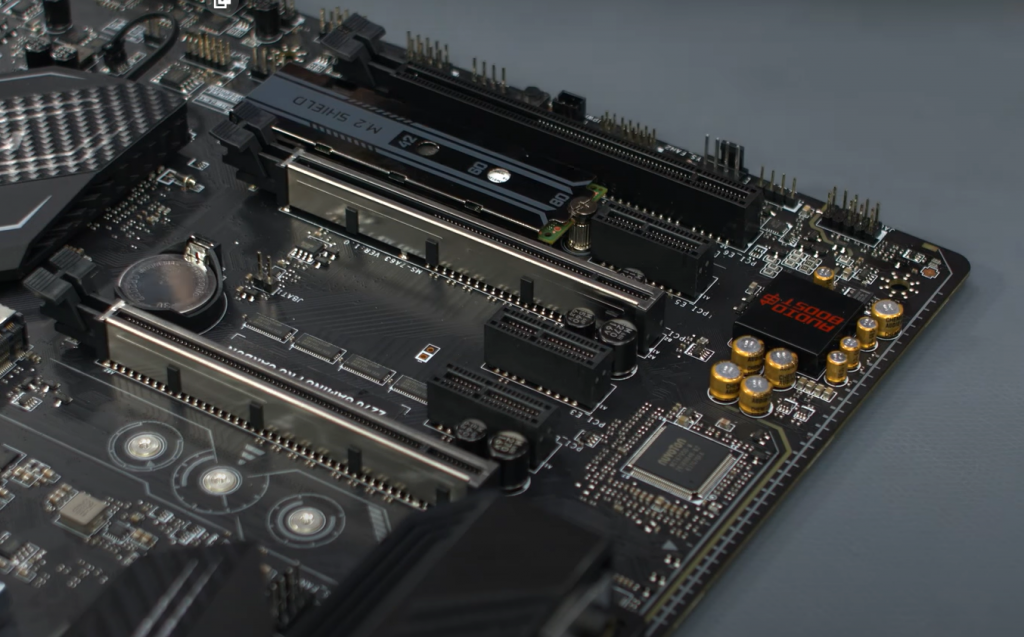
Since the introduction of Intel’s i7 CPUs in 2008, their reputation has improved steadily as they have continued to dominate performance charts. I7 CPUs have been seen as a popular choice among gamers, people in need of a lot of processing power, and multitaskers who want to perform several activities at once.
These CPUs are known for being high-end processors for common users, and their performance is comparable to but below that of server-grade CPUs such as Xeon and the Intel Extreme, which are targeted towards distinct user types.The eighth generation of Intel Core i7 (i7-7700K), which was released in October 2017, has grabbed the attention of many PC enthusiasts and gamers, as well as signaling a new Z270 motherboard with a new chipset. As a result, it’s clear that many gamers and processing power enthusiasts would want to know about the best Z270 Motherboard for i7-7700k.
Keep in mind that there are many different motherboard form factors. The most popular ones are ATX and mATX, but there are also mini-ITX and even micro-ATX motherboards [2].
Please note that there are many different options when it comes to selecting a motherboard, so make sure to do your own research before making a purchase.
Is the Intel i7 7700k Processor Still Good for Gaming Today?
The Intel i7700k processor is still a great choice for gaming today. It has a clock speed of up to four-and-a-half gigahertz and eight threads, making it perfect for gaming. Additionally, the processor comes with an integrated graphics unit that’s great for basic gaming needs.
However, if you are looking for something that can handle more demanding games or you want to use multiple monitors while gaming, then you may need to upgrade your processor. The Intel i7700k is also starting to show its age and may not be able to keep up with the latest games as they are released.
Main Features:
Types of Motherboard:
1) ATX (Advanced Technology Extended)
The most popular motherboard size is about 12×11 inches. They offer the most features and expansion slots, and are suitable for most builds.
There are three main types of ATX motherboards:
- Standard ATX motherboards are the largest. They’re about 12×11 inches and have nine expansion slots;
- Extended ATX motherboards are about 13×12 inches, have 10 expansion slots, and often include more USB ports than standard ATX boards do.
- The Baby AT was replaced with the ATX format PC motherboard. The CPU and memory were shifted 90 degrees in the ATX layout, allowing for full-length add-on cards to be inserted into all sockets. Rather of drawing air through the case, the power supply blows air over the CPU;
ATX was the first PC motherboard (1995) to not only include I/O support (serial, parallel, mouse, etc.), but also to have all of the connections located on the motherboard. Prior to the ATX, just the keyboard connection was attached to the motherboard [3].
2) Micro-ATX
Micro-ATX motherboards are about half the size of ATX boards, measuring in at approximately 244 × 244 mm. They offer fewer expansion slots and ports than ATX or extended ATX motherboards do, but they’re still suitable for most builds.
The BTX motherboard layout was introduced in 2004 as an alternative to the aging ATX design but never gained widespread popularity. It has since been replaced by the Micro-ATX format.
Micro-ATX motherboards are the smallest – they’re about 11×09 inches, have 4 expansion slots, and usually don’t have as many I/O ports as larger boards do.
3) Mini ATX
Mini ATX motherboards are the smallest type of motherboard available, measuring just 170 × 170 mm. They offer the fewest features and expansion slots of all three ATX sizes, making them suitable only for very small builds.
There are no mini-ITX or pico-ITX boards that use the standard ATX form factor – these tiny boards use proprietary shapes and sizes.
The Mini ITX was introduced in 2001 by VIA Technologies. It is a smaller version of the MicroATX motherboard, measuring 6.7 inches wide by 6.7 inches long. The standard 12-volt power connector has been replaced with an 18-pin connector to reduce voltage drop and improve power delivery [4].
Compatibility
One of the first things you’ll want to look at when choosing a gaming motherboard for your i7700K is compatibility. Not all motherboards are created equal, and some will be better suited for certain processors than others. Be sure to do your research ahead of time to avoid any potential headaches.
Generally speaking, most Intel LGA1151 processors will work with most Intel LGA1151 motherboards. However, there are a few exceptions – so it’s always best to check both the processor and motherboard manuals before making your purchase.
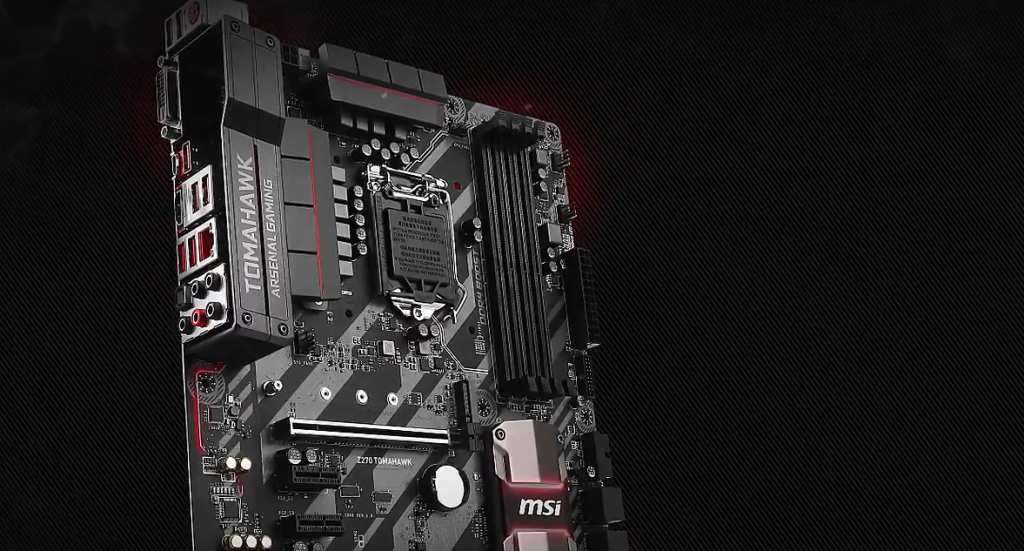
AMD has been making great strides in the past few years, and their processors are now a viable alternative to Intel. In fact, some gamers even prefer AMD’s architecture for certain games.
Power Connectors
Power connectors are comparable to arteries and veins in a motherboard. The greatest of all is the ATX power connections, which include 24-pin modulation for delivering adequate power.
When external components are linked to it, then make a choice that allows more pins and add-on capabilities. There are tiny and tiny ATX power connections that differ depending on the number of pins and expansion slots on the motherboard.
The ATX12V connector supplies power to the CPU, and it’s a good idea to have an adequate supply of power for your graphics card. The PCI-E slot is designed to receive the largest graphics cards and these connectors are often called PCIe x16 or simply 16x [5].
However, some high-end motherboards come with two or more slots that are capable of running in 16x mode. Make sure that you have a powerful PSU if you plan on using multiple graphics cards in SLI or Crossfire mode.
RAM Slots
With more RAM, your game will play flawlessly. Because the graphics memory needs are met by heavy and strong Gigabytes from your Random Access Memory, a game may run beautifully with more RAM. High-end games almost always need additional memory to load and run smoothly, whether or not they’re paused.
Before you go shopping for a motherboard, be sure to compare the RAM slots and their maximum expandability. It’s better to get quad-channel RAMs with color coding and sufficient RAM capacity, so look for expandable RAM capacity as well.
Certain motherboards support overclocking, which is the process of making a component run faster than it was designed to. If you’re looking for that extra performance boost then an overclocking motherboard might be what you need. Be sure to do your research on this before buying!
Cooling System and Heatsink
For gaming or for other activities, a fan is required to provide a cooling effect to your PC, especially when overclocking. When the gaming area for long-term system components becomes heated up suddenly and creates a loud roar inside. It’s preferable to invest in a large and effective cooling fan that isn’t noisy or slow.
It’s also one of the largest coolers on the market, so it won’t take up too much space in your case.
RGB Lighting
One of the main features that gamers look for in a motherboard is RGB lighting.
Boards with customizable RGB lighting can be tweaked to match your style, and some even come with pre-set effects and animations.
If this is a feature that you’re interested in, then make sure to check out the motherboards with Asus Aura Sync, Gigabyte Fusion, or MSI Mystic Light support.
Some motherboards also offer built-in accelerometers and gyroscopes which allow you to control the orientation of your board’s lights using movement and gestures. This can be really cool if you want to show off your gaming PC at a LAN party or exhibition.
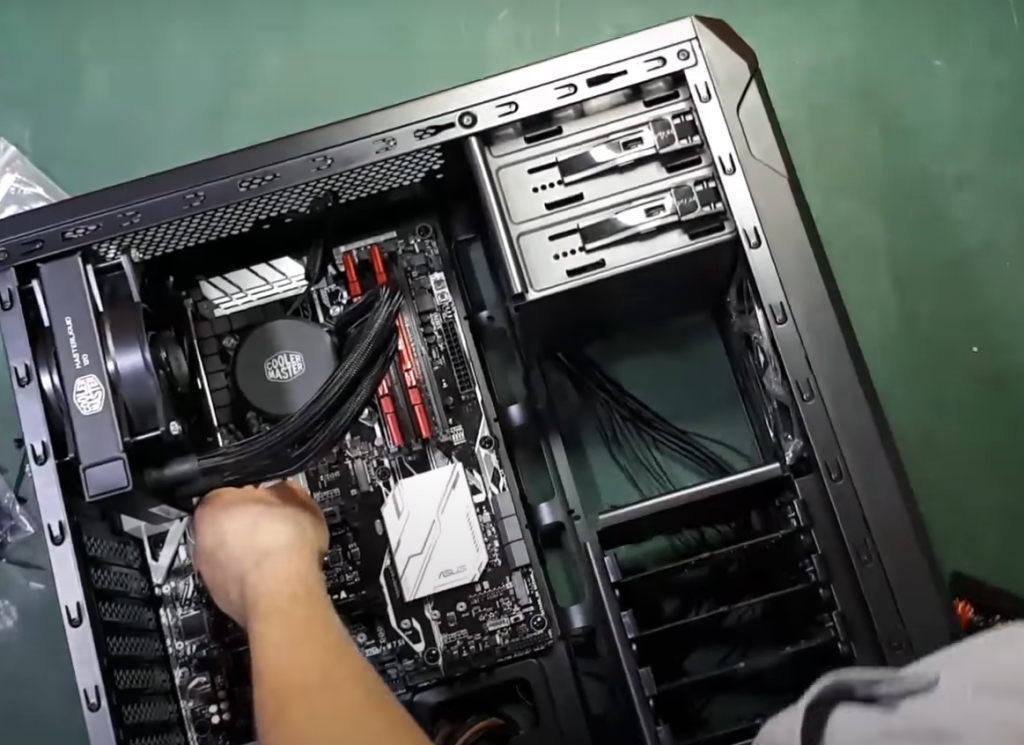
If you don’t care about flashy lights, there are plenty of motherboards without RGB lighting that offers great features and performance.
WiFi adapters
Some motherboards come with built-in wireless adapters, while others require you to purchase one separately. If you need a wireless adapter, make sure to check the motherboard’s specifications to see if it is compatible with your desired network standard (802.11ac or 802.11b/g/n).
CPU Compatibility
The first thing you need to consider when choosing a gaming motherboard for your i74700K is CPU compatibility. The motherboard must be able to support the K-series of Intel CPUs, of which the i74700K is one. Some motherboards are only compatible with certain CPUs, so make sure you double-check that before making your purchase.
There are also different socket types available on motherboards. The most common sockets are LGA 115x and LGA 2011-VIII. However, there are some newer sockets like LGA 2066 and TRX40 which offer better performance. Make sure to research what socket type your chosen motherboard uses before purchasing it in order to ensure compatibility with your CPU [6].
Finally, be aware that some motherboards have different features that may or may not be compatible with your CPU. For example, the motherboard’s chipset can affect how fast your RAM will run. Make sure to do your research on what features are available on each motherboard and whether they are compatible with your chosen CPU.
Socket
The sockets LGA, PGA, and BGA are used to connect the motherboard with other components. As a result of this, go for the socket that is compatible with your CPU. Experts recommend using LGA since it is Intel’s most recent socketing [7].
Socket LGA 115x is the most popular for current gaming motherboards. It uses pins that are inserted into the motherboard, whereas socket AMx and FMx use a Zero Insertion Force (ZIF) connector which does not require much force to insert the CPU.
AMD released their greatest Ryzen processors in March 2017 using the AMx socket, so you might want to consider this option if you’re looking to build a new system with one of those CPUs.
Form Factor
Another thing to consider is the motherboard form factor. In other words, the form or shape of the motherboard is referred to as the Form Factor. Motherboards are generally built using ATX and Micro ATX form factors, as well as Amplified ATX format.
If you’re unsure about the form factor you need, check it against the ones available with the previous one you utilized to get a decent feel. If you’re upgrading from a Micro ATX to an ATX motherboard, for instance, the latter will have more expansion slots and often a bigger CPU socket.
The most popular form factor is ATX which offers plenty of space for additional hardware and PCI-Express slots. The main downside of using larger motherboards is that they can be harder to fit into smaller cases.
SATA Slots
The SATA slots are used to connect to external optical drives and other storage devices like hard drives and solid-state drives. As a result, before you buy a motherboard, make sure it has enough of them so that you may connect all required drives later on.
Some boards come with onboard SATA controllers that are angled perpendicular to the PCB, which can make cable management a little tricky. Thankfully, most of today’s cases come with plenty of room behind the motherboard tray so routing cables shouldn’t be too much of an issue.
PCI Slots
PCI slots are required for connecting expandable cards. To link expandable cards, your motherboard must have PCI slots. You should choose a motherboard with Supported extensions slots according to your needs. If you’re buying a motherboard for gaming only, make sure it has at least one PCI slot with at least x16 space and supports PCI Express technology.
PCIe slots are the latest technology in motherboard expansion and are much faster than PCI. PCIe x16 is the most popular type of PCIe slot and offers the best performance. If you’re looking to use a graphics card, you’ll want to make sure your motherboard has at least one PCIe x16 slot.
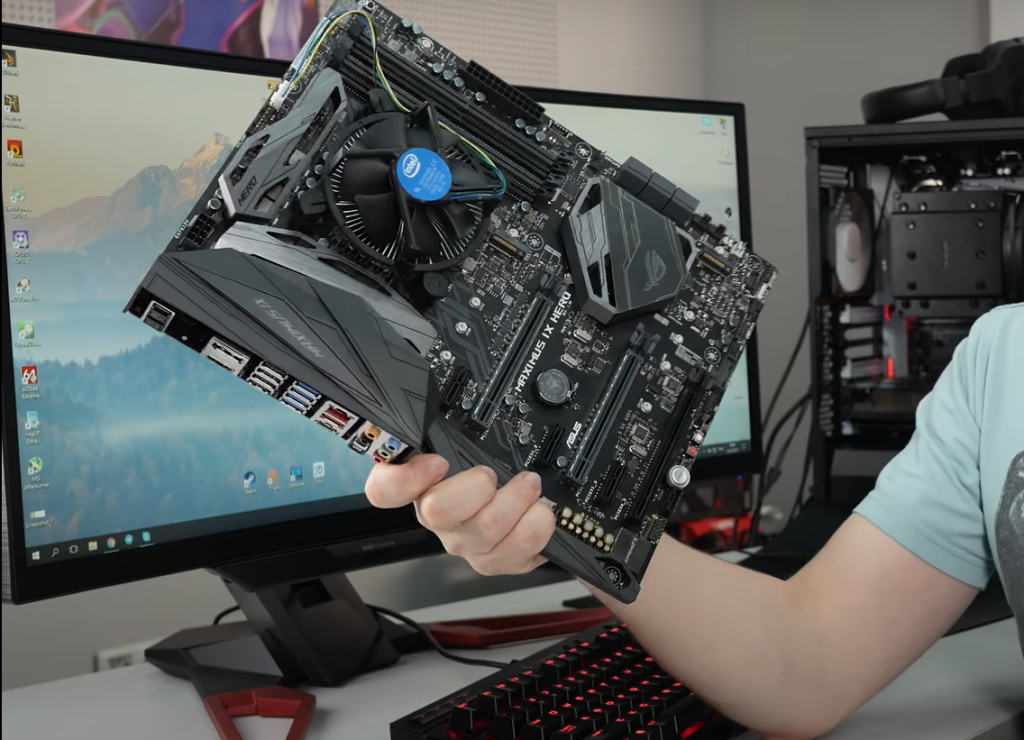
Some motherboards come with additional ports like USB or eSATA. Make sure the board you choose has what you need. Also, be aware that some boards only have certain ports on the rear I/O panel, so if front-panel access is important to you, check before buying.
Compatibility With Your Operating System
One of the most important factors you need to consider when buying a gaming motherboard is its compatibility with your operating system. Make sure that the board supports the same version of Windows that you are running on your computer.
Most gaming motherboards come with drivers and software that allow you to control various features of the board.
However, these programs are usually not compatible with older versions of Windows. So if you are using an older version of Windows, make sure that the board you buy has drivers available for download on the manufacturer’s website.
Some boards also come bundled with games or other software. If this is something that interests you, be sure to check what is included before making your purchase.
Motherboard Brand and Model
Gaming motherboards come in all shapes and sizes. It can be hard to determine which one is the best for your needs. The first step is to decide on a motherboard brand. Some of the most popular brands are Asus, Gigabyte, MSI, and ASRock. Once you have decided on a brand, you need to choose a model. Models usually have a series number attached to them (ex: Z270). Each model has different features that may or may not be important to you. Be sure to do your research before settling on a specific model!
FAQ
Is an i7 7700K good for gaming and streaming?
Yes, the i7700K is excellent gaming and streaming CPU. It has a high clock speed and can easily handle multiple tasks simultaneously.
Do I need a powerful graphics card with an i7700K?
No, you don’t necessarily need a powerful graphics card when using an i7700K CPU. However, if you want to take advantage of all its power, then we recommend investing in a high-end graphics card like the
Will an i7 7700K bottleneck an RTX 3070?
In most modern AAA games at 1080p, an i7 7700K would severely hamper an RTX 3070 Ti, but it would function well in games that don’t make use of as many CPU cores and higher resolutions [9].
Is the i7 7700K a good CPU?
The i7700K is an amazing CPU and it has been widely regarded as the best gaming processor on the market. It’s a quad-core chip with Hyperthreading enabled, so it can process up to eight threads simultaneously. This makes it perfect for gaming and other demanding tasks
If you’re looking for a powerful CPU that will give you great performance in games, then the i7700K is definitely the one for you. It’s also overclockable, so you can get even more out of it if you want to push its limits.
Can I stream with a Core i7?
Yes, you can stream with a Core I-series processor. In order to do so, you will need a motherboard that has an Intel chipset and supports streaming. The best gaming motherboards for iSeries processors also offer good performance and quality audio for your live streams.
The ASUS ROG Maximus IX Hero is a great option for those who want to stream and game simultaneously. This board has some impressive features, such as Aura Sync RGB lighting and SupremeFX audio technology. It also offers excellent overclocking potential, making it the perfect choice for gamers who want the best performance possible.
If you’re looking for something a bit more affordable, the ASRock Z370 Killer SLI/ac is a great option that still offers great performance. This board has two PCIe slots for multiple graphics cards, as well as a built-in Killer LAN adapter for lag-free gaming. It also comes with ASRock’s XFast 555 technology, which delivers improved performance and stability.
Can Intel i7 run 3080?
4K at 60 frames per second or more is now feasible with a Core i7-4770K, Ryzen 5 3600, or a Core i9-10900K [10].
Is an i7 enough for a 3070?
The short answer is no, and i-GPU will not be enough for a 3070. You’ll need at least a GTX 1070 to handle that card.
However, if you’re looking for something more budget-friendly, the AMD Ryzen 1700 will do the trick and it’s still plenty powerful for gaming. Plus, with that kind of power under the hood, you can also multitask like a champ! So it really depends on your needs and what you’re expecting out of your build.
How do I overclock i7 7700K?
There is no one-size-fits-all answer to this question, as overclocking will depend on the specific motherboard and CPU you are using. However, some motherboards come with pre-set overclocking profiles that make it easy to get started. If you’re looking for more control over your overclocking settings, consult your motherboard’s manual or online help resources for more information.
One important thing to keep in mind when overclocking is that you must ensure that your system’s cooling capabilities can handle the increased heat load. Overclocking can cause components to run hotter than usual, so be sure to have a good quality cooler installed and check your temperatures regularly to avoid any damage.
If you’re not comfortable with overclocking, or if you’re not sure your system can handle it, then it’s best to leave the overclocking settings alone. Overclocking can be a great way to get more performance out of your hardware, but it also carries some risk, so make sure you understand what you’re doing before trying it yourself.
Is 4 cores enough for gaming?
The majority of the newest gaming CPUs have at least four cores, while only a few older non-gaming CPUs still have two or fewer cores.
In 2022, six cores are typically regarded as ideal for gaming. Four cores may still suffice, but it would hardly be a future-proof option [11].
Can CPU affect FPS?
The short answer is no, the CPU can’t affect your FPS. However, the right gaming motherboard can help improve FPS performance.
When you’re looking for a gaming motherboard, it’s important to find one that has features specifically designed for gamers. For example, some motherboards come with built-in overclocking capabilities, which can help boost your system’s performance.
Additionally, make sure to choose a board that has good thermal design power (TDP). This will ensure that your motherboard doesn’t overheat and cause decreased FPS in games.
Is 10700K good for 1440p?
The iCore-i7700K is an excellent processor for gaming and other intensive tasks at 1440p resolution. The extra cores and threads of the iCore-i7900X will be wasted at this resolution, so save your money and get the 7700K. It will deliver great frame rates on all but the most demanding games. If you are looking to future-proof your system, then consider upgrading to a motherboard that has an X299 chipset instead. This will allow you to use Intel’s newest Core I-series processors when they are released later this year [12].
How long will i7 10th Gen last?
Assuming you maintain your i7 for at least four or five years, it will be quite relevant for at least four or five years. It will still be relevant in the future because of Moore’s law [13].
What motherboards will support rocket Lake?
The Z590 and B560 motherboards are the most popular ones to use with Rocket Lake:
- The ASUS ROG Maximus XI Hero (Wi-Fi AC) and the ASRock Z390 Phantom Gaming ITX/AC are both great motherboards that will support Rocket Lake.
- The MSI MPG Z390I GAMING EDGE AC is a great motherboard if you’re looking for something a little smaller, and it still supports overclocking.
- The Gigabyte Aorus GA-Z390N-WIFI is also a good option, especially if you want to use Wi-Fi on your motherboard [14];
If you’re looking for a more budget-friendly option, the Biostar TB360-BTC Pro is a good choice. It doesn’t have as many features as some of the other motherboards on this list, but it’s a good option if you want to save some money.
Is the i9 better than i7?
The I-Core series of processors from Intel are some of the best on the market. The I-Series offers a range of different processors, each with its own set of features and benefits. When it comes to gaming, the I-Core series is one of the best options out there for gamers. However, when looking at the different models within the Series, it can be difficult to determine which one is best for needs.
The I-Core Series of processors come in a range of different models, each designed for different needs. The I-Series offers something for everyone, whether you are looking for a budget-friendly option or the best performance possible.
The I-Core I-Series of processors is available in both desktop and laptop options, so no matter what your needs may be, there is sure to be an option that fits.
When it comes to gaming, the most popular choice is the I-Core i7 7700K model. This processor offers great performance and speed, making it perfect for gamers who want the best possible experience.
Does the i7 10700K run hot?
The Intel Core i7-4765T and i7-920 CPUs have maximum operating temperatures of 150 and 154 degrees Fahrenheit, respectively. At idle, both processors operate between 97 and 100 degrees Fahrenheit, with full load peaks of 132 and 136 degrees Fahrenheit [15].
Can I use i7 10700K without GPU?
Yes, you can. The integrated graphics on the GPU will be more than enough for light gaming or everyday use. However, if you want to do any kind of high-end gaming or video editing, you’ll need a dedicated graphics card.
Useful Video: Best Motherboards For i7 7700k Build in 2020/2021
Final thoughts
Hopefully, you’ve enjoyed the series on gaming motherboards. If so, please share this article with your friends and family! And don’t forget to read the guide if you’re in need of a new gaming motherboard for i7 7700K CPUs. Whether it’s for general use or just occasional playtime, PC gaming experts have something that will suit your needs perfectly. So be sure to check out the reviews below before deciding which one is right for you!
References:
- https://www.quora.com/Should-I-get-intel-i7-7700k-for-a-new-gaming-PC
- https://techcompact.com/best-motherboard-for-i7-7700k/
- https://www.pcmag.com/encyclopedia/term/atx-motherboard
- https://www.easytechjunkie.com/what-is-mini-itx.htm
- https://gmdrives.com/best-motherboard-for-i7-7700k/
- https://en.wikipedia.org/wiki/LGA_2011
- https://techloguide.com/best-motherboards-for-i7-7700k
- https://pcguide101.com/motherboard/how-many-sata-ports-do-you-need
- https://www.quora.com/Will-an-I7-7700K-bottle-neck-an-RTX-3070-Ti
- https://www.tomshardware.com/features/nvidia-geforce-rtx-3080-ampere-cpu-scaling-benchmarks
- https://www.gamingscan.com/how-many-cores-for-gaming
- https://thepcenthusiast.com/intel-core-i7-10700k-review/2
- https://gamingsection.net/news/how-long-will-an-i7-7700k-last
- https://www.anandtech.com/show/16495/intel-rocket-lake-14nm-review-11900k-11700k-11600k/3
- https://smallbusiness.chron.com/average-temperature-intel-i7-processor-81659.html

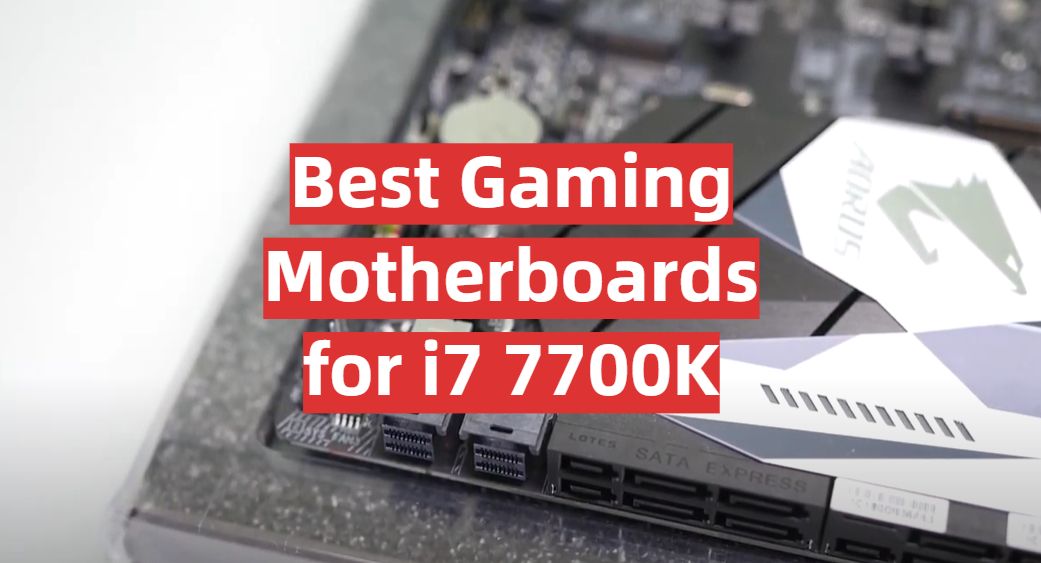


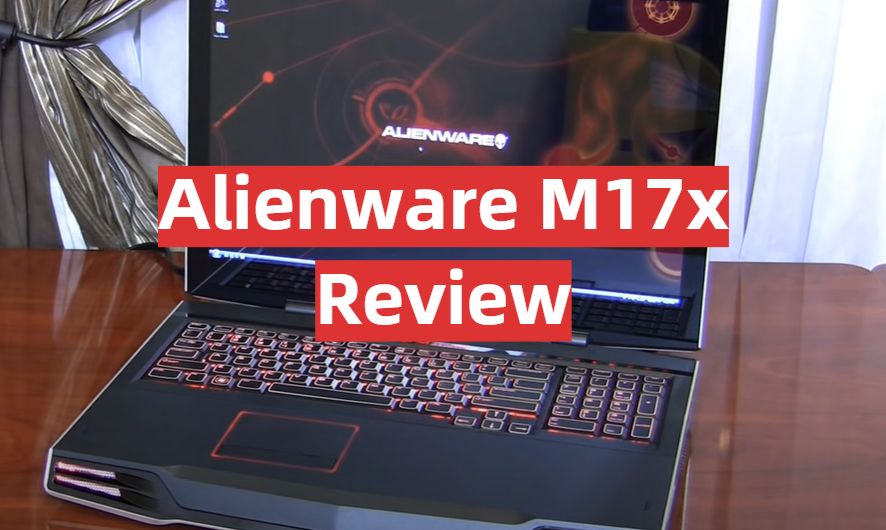
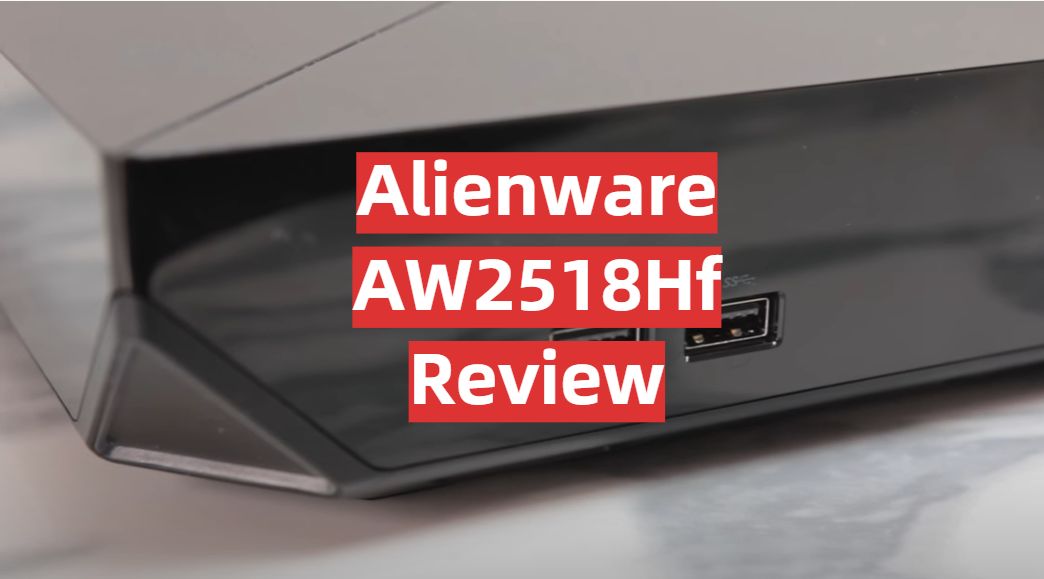
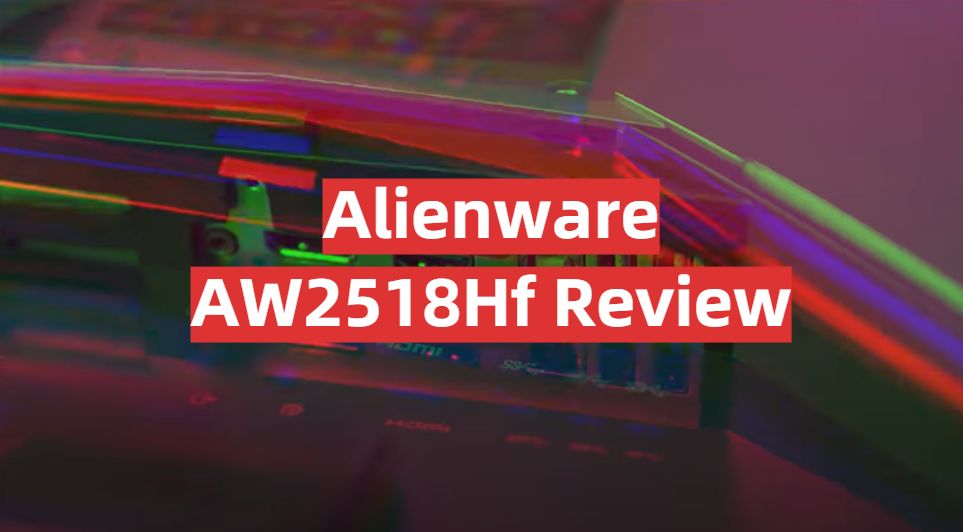
Leave a Reply